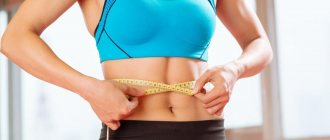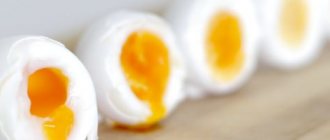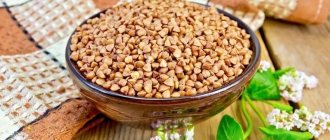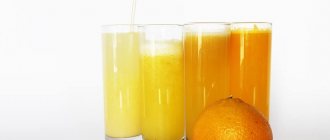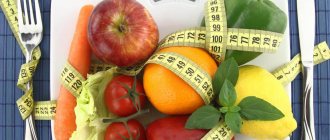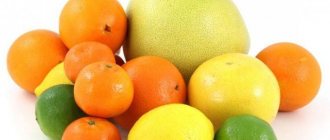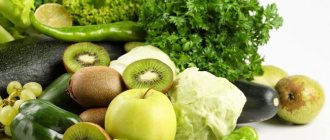Diet for students, it turns out, is necessary from the very beginning of their studies. According to the observations of medical workers, after the first year of study at a university, students gain several kilograms. This is due to the fact that mother is not around and there is no one to prepare proper food. And if no one cooks, then the student eats what God sent - fast food, snacks, carbonated sweet drinks. Constant snacking, snacking, eating while hugging a smartphone or tablet - all this negatively affects the main organ of the digestive tract - the stomach, the metabolism and, as a result, excess fat accumulates in the body.
What foods should students eat?
Students are people who study a lot and constantly strain their brains. So, to maintain brain tone, it is necessary to include the following foods in your diet:
- garlic - it accelerates blood circulation, saturates the brain with oxygen and ultimately improves memory;
- honey – the glucose contained in it improves memory;
- milk – vitamin B12 present in it promotes better memory;
- lemon – vitamin C prevents forgetfulness and helps retain information in the head;
- red and purple grapes – improves the nutrition of gray cells and protects them from destruction;
- walnuts – the vitamins B and E they contain stimulate the functioning of brain cells and develop thinking;
- water - the body of all people consists of 80% water, and the brain is 90%, so you need to drink at least 8 glasses of water a day to maintain the elasticity of the gray matter. Water also speeds up the body's metabolism, which is very important for losing weight.
Punishment with lunch
Nowadays, it is common to spend long periods of time with friends in cafes and fast food restaurants. To avoid harming muscle growth, follow 10 simple rules:
- If you had to buy a hamburger, remove the top half of the bun. If there is a slice of cheese on top of the meat cutlet, you should also put it aside.
- No French fries or mashed potatoes! It’s better to take half a boiled potato and fill it with “healthy” filling. Even better is to order grilled vegetables.
- Don't order macaroni, especially with cheese. Ask for boiled rice without oil.
- Do not order fried meat, especially minced meat, in the form of cutlets and steaks. It is soaked in oil from the frying pan. Order meat, chicken and fish only on the grill.
- When it comes to drinks, order pure mineral water or freshly squeezed juice. Other juices are not suitable: they have added sugar.
- In any restaurant, even upscale ones, be picky. Why give money for dishes that are obviously harmful? In any case, you should limit yourself to a grilled chop, and only from grass-fed beef, and lettuce. Do not add salt to the salad or pour dressing on it. Ask for wine vinegar with your salad. Add a bottle of still water and freshly squeezed juice to your order. We only accept piping hot whole grain bread, prepared in the restaurant itself. Regular bread bought around the corner from a nearby supermarket is not suitable for you.
What foods should you avoid?
There are foods that students need to categorically exclude from their diet because of the irreparable harm they cause to the body. The leaders in terms of harmfulness are chips and carbonated sweet drinks. Chips are a mixture of unhealthy fats and fast carbohydrates, seasoned with food colorings and preservatives, the calorie content of which is off the charts, up to 1100 calories in one pack, which corresponds to 50% of the daily value. Sweet carbonated drinks are a mixture of aspartame, sugar, dyes, preservatives, the consumption of which leads to inhibition of metabolism and obesity. You should also add trendy energy drinks to this list. In addition to all of the above, they provoke addiction or dependence, which is very bad for the body.
Next in terms of harmfulness is food from fast foods, the so-called “fast food” - hamburgers, French fries, pasties, nuts, Mivina, Doshirak, sandwiches, crackers, soups from bags. The harm is the same as from chips. In terms of harmfulness to the body, fast food is also not inferior to sausage products - when paper was added to it, nothing else, because cellulose has always been a natural product. Nowadays, transgenic soybeans are added to sausages, sausages and sausages, which causes intoxication of the body.
The next most harmful foods are sweets, margarine, and baked goods made from wheat flour. We have known all this since early childhood - the high sugar content in cakes and its immediate digestibility lead to an increase in blood sugar, metabolic disorders and obesity. Margarine contains a sufficiently high concentration of transgenic fats that it should be completely excluded from the diet. Let's not forget to mention mayonnaise and ketchup, which are a necessary attribute of every meal. If you can’t give it up completely, limit it to 1-2 times a week. Mayonnaise, again, has a high content of transgenic fats, and vinegar, reacting with plastic packaging, saturates mayonnaise with carcinogenic substances. In ketchup, you may not even find tomatoes; instead, there are dyes, flavor substitutes and preservatives. If you can’t give up ketchup completely, ask your mom to make homemade ketchup from tomatoes and natural seasonings.
These are all basic products that you need to limit your consumption and try to gradually stop using them completely. Then you won’t have to think about a diet to lose weight or run to doctors with health problems.
Reviews and results
The diet for students is the usual rational and balanced diet. The main difficulty in complying with it lies in the low level of organization of students regarding issues of their nutrition, due to the specific way and pace of student life and a misunderstanding of its significance for health.
- “... I was taught to eat healthy since childhood, since all my parents supported a healthy lifestyle. When I became a student, the question of normal, nutritious nutrition arose. Mom immediately bought me everything I needed - several pots, a frying pan, cutlery and a pressure cooker. I knew how to cook simple dishes such as porridge, omelet, soup, potatoes before, so there were no problems with cooking. My roommates initially ate in the cafeteria, but then, when I suggested we cook together in the dorm, they agreed. Food is either delivered/transferred to everyone by train or we buy it by chipping in. By the third year, I was already a good cook, since there was a student from Uzbekistan in my class who taught me all the intricacies of oriental pilaf, a friend from Ukraine - how to cook Ukrainian borscht, and a roommate’s father how to properly cook meat and pizza. Now I’m finishing university and I can’t even imagine what it’s like to eat in public catering. I've tried it a couple of times, but it's not that tasty. I recommend that all students master this simple art and eat normally.”
Basics of nutrition for students.
Each student should try to independently organize their nutrition in such a way as to obtain all the necessary nutrients from food. To do this, follow some simple rules:
- Organize meals 4 times a day:
- in the morning – cereal energy drink (porridge) without sugar and butter, cooked in milk or meat broth;
- second breakfast – yogurt, kefir or fermented baked milk, optionally with a bun;
- lunch should be included - soup (borscht), a piece of meat or poultry, salad, natural fruit juice;
- dinner - something light - cottage cheese, mozzarella, salad or vegetables, cooked in any form.
- Eat food without haste, sitting comfortably at the table.
- Try to cook food from natural products, not semi-finished products.
- Drink a lot of natural water (not carbonated).
- Include fresh fruits and vegetables in your daily diet, preferably domestic and in season.
- Avoid snacking on the go.
- Refrain from drinking alcoholic beverages.
If these were the rules of food consumption while living with parents, then in independent life it will be easy for the student to adhere to them.
Recipes
For a student, the main thing is to quickly prepare a hearty dish without spending a lot of time on it. There are many recipes in this regard. A couple of them will be given here.
Bouillon
A light and satisfying dish at the same time. To make it you will need 200 grams of chicken fillet or breast, 5 potatoes, 1 onion, 1 carrot, fresh herbs, a pinch of salt, ground black pepper.
- Remove skin, spit and fatty streaks from the chicken. Remove from bones if there are any. Cut into medium pieces and place in a saucepan with water.
- At the same time, peel the carrots and onions. Grate the carrots and cut the onion into slices. Place them in a saucepan.
- Peel the potatoes and cut into cubes. Transfer to a saucepan.
- 15 minutes before cooking, add fresh herbs, salt and pepper.
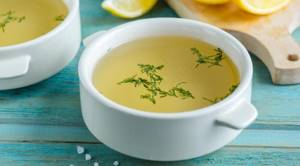
Hearty omelette
Breakfast should give the student strength for most of the day. To prepare a tasty and satisfying omelette you will need 3 eggs, 2 tomatoes, 2 slices of bread, pepper, salt, fresh herbs, a tablespoon of vegetable oil.
- Break the eggs and beat thoroughly in a deep plate. Chop the greens and add them there. Season with salt and pepper.
- Cut the tomatoes with bread into cubes. Pour vegetable oil into a frying pan, heat it and pour bread and tomatoes onto it.
- After two minutes, pour in the eggs and herbs. Cover with a lid and reduce the heat. Leave until ready.
Basic diet rules for students.
In order not to think about a diet for weight loss, the main meals for a student should include the following substances in the daily diet:
- proteins (lean meat, poultry and fish) - saturate the body with protein, which promotes muscle growth, restores cells and supports all body functions;
- carbohydrates - they produce the energy needed by the body, but this energy should not come from white bread, cakes or pasta, but from porridges made from oats, buckwheat, pearl barley (barley), corn and black bread;
- fats are essential for nourishing the brain, but not of animal origin, but of vegetable origin (olive, sunflower). It should be remembered that palm oil (of plant origin) only causes harm to the body, so its use should be strictly avoided.
In addition to proper nutrition, the student should think about proper night rest - sleep for 8 hours every day. With a lack of sleep, the body’s immune system begins to malfunction, the acidity of the stomach decreases, which affects the absorption of incoming proteins and fats in the body. In addition, muscles take in much less sugar from the blood, which then turns into fat. Of course, in addition to studying, a student also wants to have fun, go to a disco or party and sleep 8 hours is not possible. This is not a problem - sometimes it is possible, but this “sometimes” should not be permanent.
Student weight loss in numbers
I started gnawing on the granite of science as a rather well-fed girl - almost 80 kg of happiness with a height of 168 cm. At the same time, I rushed like a hurricane to part-time jobs, somehow studied as a full-time student, and did not suffer from depression or lack of attention from men either. And, by the way, like all spiritually rich virgins, she didn’t go in for sports. I was “locked in”, as they say, out of principle and for company - the boy I was dating at the time once took me with him to the rocking chair, where it suddenly turned out that I was very capable of lifting weights, and it began...
Or rather, it almost ended right away - it was as if the energy had been sucked out of me, I began to rage about any reason and eat-eat-eat. It dawned on me when my democratic size 48-50 jeans stopped fastening. After reading books about the nutrition of a weightlifter, I realized that I wouldn’t go further than an empty bar with buns. Cottage cheese, eggs, meat, buckwheat, fruits, vegetables, kefir, protein...all this needs to be bought and prepared. And then I thought hard.
I must say, there was something to be said. The budget of a girl student from the provinces was 7,000 rubles, of which 1,000 went to pay for “elite” housing, in which there was even nothing to really cook. 600 rubles were courageously given to the “rocking chair”, the rest ended up in the pockets of bun-shawarma-coffee-three-in-one traders, and organizers of concerts and entertainment. And the trainer I came across was angry - he said that I needed to lose at least 20 kg, because... With such “fat”, squats and other weightlifting pleasures can be dangerous for the knees.
Naturally, like any other 17-18 year old girl, I decided to start off on buckwheat and kefir, since they are terribly cheap and there is no need to cook them. Needless to say, the result of my buckwheat-kefir exercises was 5 kg lost, a couple of fainting spells at the wrong time and in the wrong place, and a wild passion for eating doner in pita bread. Realizing that the system was not working, I made a courageous decision - I bought a microwave and even begged my aunt for an old Saratov refrigerator.
[back to contents]
